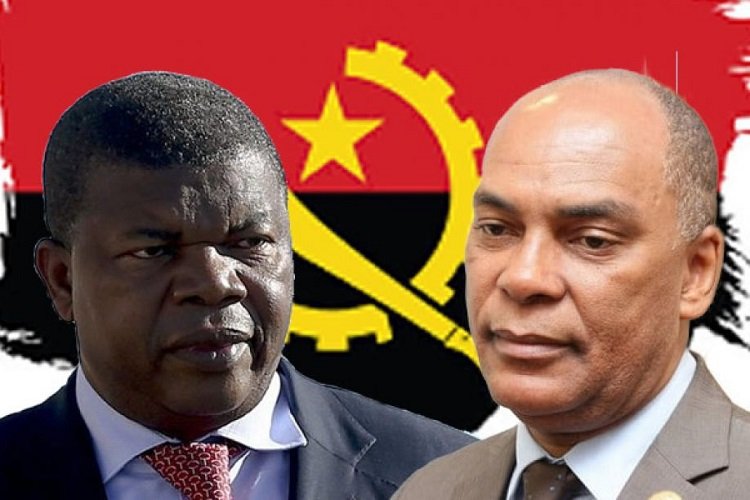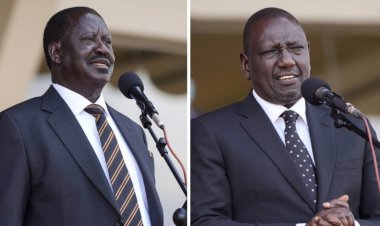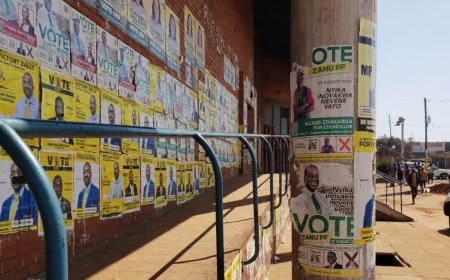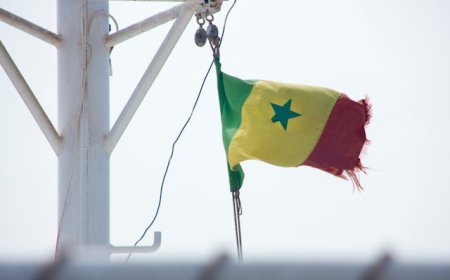Summary
- Angola’s 2022 election will be a tight race between the ruling Popular Movement for the Liberation of Angola (MPLA), led by President João Lourenço, and UNITA, led by Adalberto Costa Júnior.
- The election is expected to be the most competitive election since the 1992 elections due to growing unpopularity toward the MPLA, the emergence of a more demanding citizenry and an emboldened opposition camp.
- The election revolves around issues of governance, state reform and socioeconomic development. The MPLA is promising policy continuity while UNITA calls for structural reforms.
- There is a serious risk of protests after the National Electoral Commission announces the results or if the Constitutional Court strikes down any opposition challenges to the results.
Background
On 24 August 2022, Angolans will cast their ballots for members of parliament and the president. The vote combines parliamentary and presidential elections since, under Angola’s peculiar electoral system, the leader of the party with the most votes becomes president. This year’s election represents a milestone in the country’s democratic trajectory. It will be the fifth election since the transition to multiparty politics in 1991. Voters born after the civil war, which ended in 2002, as well as those in the diaspora, will vote for the first time.
The election comes at a time of unprecedented political, social and economic challenges, and it is expected to be the most competitive election since the 1992 elections due to growing unpopularity toward the ruling MPLA, the emergence of a more demanding citizenry and an emboldened opposition camp.
Main contenders
There are eight political organizations cleared to run in the election, including seven political parties and a coalition of political parties. However, the poll is going to be a tight race between two political rivals: the ruling MPLA, led by incumbent President João Lourenço, and the main opposition party, the National Union for the Total Liberation of Angola (UNITA), led by Adalberto Costa Júnior.
The MPLA has been in power since Angola’s independence from Portuguese colonial rule in 1975, first as the only party (during formal one-party rule) and subsequently, in the context of multiparty politics, as the dominant and hegemonic party. The party’s leader, President Lourenço, is standing for re-election. He came to office in 2017, succeeding former President José Eduardo dos Santos, who held power for 38 years.
President Lourenço ran on a ticket of change, promising to tackle corruption, strengthen the rule of law, diversify the economy and improve the social conditions of Angolans. The first two years of Lourenço’s term saw relative openings, but as he failed to turn around the dismal economic situation for ordinary citizens, contestations rose again, leading to a rise in repressions.
UNITA’s leader, Adalberto Costa Júnior, was first elected as flagbearer in 2019. However, the Constitutional Court (CC) invalidated that elective congress two years later on the grounds of administrative technicalities. Thus, in December 2021, UNITA organized a new congress, confirming Costa Júnior as party leader.
Adalberto Costa Júnior is charismatic and very popular with the urban youth (the largest voting bloc in the election). He has been broadening UNITA’s base in a bid to secure the party’s first electoral victory. To this end, the party has joined forces with two political organizations, the Democratic Bloc (BD) and the PRAJA-Servir Angola, as well as with independent candidates, in a political platform called United Patriotic Front (FPU).
The FPU’s informal coalition, centred on including independents and candidates from other parties in UNITA’s list places, is in contrast to the CASA-CE, the first coalition in the country in 2012, which resulted from an alliance of minor political parties and independent candidates. As such, it is the first time that the main opposition party has adopted this strategy.
Main campaign issues
This election revolves around issues of governance, state reform, socio-economic development and welfare for improved livelihoods as it comes at a time of unprecedented political, social and economic challenges.
On the political front, the leadership change from former President José Eduardo dos Santos to President João Lourenço has not resulted in a break from decades of autocratic rule and mismanagement of state resources. The political space remains closed. There is executive dominance over the legislative and judiciary arms of the state, a persistent party-state culture conflating the ruling MPLA with state institutions and rampant corruption. The economy remains oil-dependent, and it is slowly recovering from a five-year stagnation. Nonetheless, its negative effects, such as high levels of public debt, inflation, unemployment and cost of living, extreme poverty and widespread hunger, continue to be felt by the majority of the population.
In its electoral manifesto, the MPLA reaffirms promises made in the 2017 election, such as the fight to eradicate corruption and impunity, promoting transparency in managing public affairs and the devolution of power through elected local governments. The manifesto promises also to reduce unemployment, eradicate hunger and extreme poverty, expand access to healthcare and quality basic and higher education, diversify the economy and consolidate Angola’s foreign relations. There are new proposals, such as the creation of new provinces and the adoption of economic policies, that will improve the business environment and attract foreign direct investment, all aimed at consolidating economic growth and improving the socioeconomic condition of Angolans. However, the recycling of past electoral promises merely indicates the party’s previous failure to fulfil them.
In the case of an MPLA win, Angolans and foreign investors should expect a continuity of policies and reforms. President Lourenço has been alluding to this in his political rallies. He explains away the ruling party’s poor performance over the past five years by referring to the constraints of the economic recession, which started in 2016, and the Covid-19 pandemic. Thus, President Lourenço argues that the MPLA and his government will improve their record in a less adverse domestic and external environment.
On the other hand, UNITA proposes structural reforms. The party mobilizes around the notion of change and promotes the idea of alternation in power as the key to ending bad governance and unleashing socioeconomic development. UNITA suggests adopting a national stability pact to promote reconciliation and ensure a smooth transition, forming an inclusive and participatory government, implementing elected local government by 2024 and a constitutional review process that provides for the direct election of the president and a new system of government that enshrines separation of powers between the executive, legislative and judiciary arms of the state.
Furthermore, UNITA identifies hunger, education, health, employment and corruption as priority challenges that, more than others, affect the lives of Angolans and presents major policies to revitalize the economy by focusing on the countryside to benefit the urban areas and to recalibrate Angola’s strategic international relations.
MPLA supporters believe that the party can deliver on the electoral promises while opposition parties´ supporters, particularly UNITA/FPU supporters, believe that the opposition deserves a vote of confidence since the ruling party has failed to improve the living conditions of Angolans over the past four decades.
Managing the electoral process
This election, like the previous ones, has been marred by controversies that might call into question the transparency and credibility of the process. These include:
- The fact that key electoral institutions are partisan due to the MPLA’s dominance in the number of officials it appoints to these institutions. These institutions include the National Electoral Commission (CNE), the CC, which acts as an electoral court, and the Regulatory Entity for Social Communication in Angola (ERCA), the entity responsible for overseeing Angola’s media sector
- The controversial inauguration of the president of the CNE, which took place while there was an appeal pending against the public contest that led to his appointment. The selection process was opposed by opposition parties and is being contested in the courts due to alleged irregularities
- The hiring of INDRA, the main service provider, to support the logistics of the electoral process, in contravention of the public tender law
- An amendment to the electoral law, less than a year before the election, to replace outdated elements in the existing law. The current electoral law provides for vote-counting to be done centrally, at the national level, rather than at the local level (districts, municipalities and provinces)
- The restricted access to the national vote-counting centre, further reducing oversight and accountability of the vote-counting process
- A flawed electoral registration process, which will prevent many potential voters from casting their ballots due to lack of information, few registration stations and slow service
- The non-expurgation of around 2.5 million dead voters from the voters’ rolls, thus potentially bringing unreliable voter turnout and apathy data
- The non-publication of the voters’ rolls and the option for their digital divulgation in a country where the internet penetration rate stands at 36.0 percent and mobile connection at 46.5 percent of the population
- A ban on opinion polling during election times
- A cap on the accreditation of national electoral observers at 2,000, three per organization per province, a highly reduced number to cater for approximately 13,238 polling stations.
Civil society and opposition parties have consistently criticized these issues. However, they have not been addressed by the competent stakeholders. Consequently, opposition parties have been countering these points with three main strategies: by deploying party agents in every polling station, by creating a parallel vote-counting centre and by denouncing observed irregularities.
Who will win the election?
The ruling MPLA, and in turn President Lourenço, are expected to secure another victory despite the opposition’s optimism. The party is a well-oiled electoral machine and has won every multiparty election held in the country. These victories result from the many advantages that the party enjoys and the staunch support and appeal that it has amongst some voters, especially in the rural areas and from individuals who benefit directly from the status quo. In power for over four decades, the ruling party has near absolute control of the state apparatus running in the elections as a de facto party-state. In this regard, key electoral institutions are partisan due to the MPLA’s dominance in the number of officials it appoints to those institutions. They include the National Electoral Commission (CNE), the Constitutional Court (CC), which acts as an electoral court, and the Regulatory Entity for Social Communication in Angola (ERCA), which is responsible for overseeing the media sector in Angola.
The ruling party has also used state resources to further its interests. For instance, the government holds a monopoly on media outlets with national outreach, especially in the television broadcasting sector, and uses them as propaganda vehicles for the MPLA. There is also the mobilization of state resources during presidential trips, which are followed by party rallies and the presentation of public projects and infrastructure as gifts from the MPLA to the Angolan people.
Primarily, however, the MPLA and President Lourenço’s biggest challenge – in case of a victory - will start after the announcement of the results. The ruling party will face serious opposition from a frustrated population, including opposition supporters and the general populace, who are weighed down by the low economic growth, rising costs of living and persisting corruption. Thus, there is a serious risk of protests after the results are announced and if the CC strikes down any opposition challenges to the results.
Transnational implications
Indeed, Africa and the world are following Angola’s election with great interest. This is illustrated by a resolution submitted by a group of United States (US) Senators from the US Senate Foreign Relations Committee calling for free, fair and peaceful elections in the country.
Furthermore, the electoral process is expected to witness the presence of international electoral observation missions. The list includes the Carter Centre, the European Union (EU), the African Union (AU), the Community of Portuguese-speaking countries, the Southern Africa Development Community (SADC), the Economic Community of West African States (ECOWAS), the International Conference for the Great Lakes Region (CIRGL), etc. It should be noted that some voters hold negative views regarding the effectiveness of international observers’ missions because of the short-term nature of their work (about a week or two of observation), their reduced number (which must fall within the limited quota determined by the CNE) and perceptions about their (im)partial character.
There is also the geopolitics of oil. Angola is one of the major oil producing countries in Africa and is a member of the Organization of Petroleum Exporting Countries (OPEC). It is, thus, a viable and strategic alternative source of energy to European and north American markets in the context of Russia’s ongoing invasion of Ukraine and the growing energy security crisis in the world economy.
The main election contenders have recognized the need to diversify Angola’s economy away from oil dependency. Thus, there is a strong probability that any future government might consider looking for strategic partners with efficient investment capacity to restructure the agribusiness, manufacturing and industrial sectors. Such policy option would represent a unique opportunity for investors, especially European countries and business people, looking for better investment prospects, as Angola seems to be reducing its economic connection with China.
Finally, Angola’s current regional foreign policy is geared towards conflict resolution in Central and Southern Africa, especially Africa’s Great Lakes region, and playing a stabilizing role in the Congos. Considering the party’s promise of a policy of continuity, an MPLA victory might maintain or reinforce these foreign policy drives.
About the Author
Dr. Albano Agostinho Troco is a research associate under the SA-UK Chair in Political Theory at the University of the Witwatersrand, Johannesburg, South Africa.




